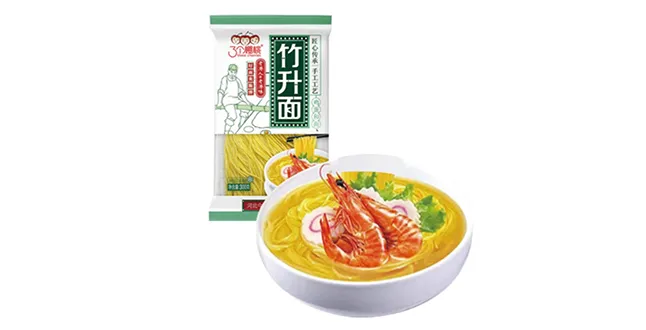do homemade noodles need to dry
Do Homemade Noodles Need to Dry?
Homemade noodles are a beloved staple in many cultures, often celebrated for their fresh taste and delightful texture. When it comes to making noodles from scratch, the question of whether or not they need to be dried before cooking often arises among culinary enthusiasts. This article delves into the reasons behind drying homemade noodles and the best practices for doing so, while also examining the consequences of skipping this crucial step.
To begin, it is essential to understand the composition of homemade noodles. They are typically made from flour, water, and sometimes eggs, which together form a pliable dough. When this dough is rolled out and cut into strips, it can be cooked immediately or dried for later use. The drying process helps to remove excess moisture, which is key to achieving the perfect texture in the final dish.
Do Homemade Noodles Need to Dry?
Moreover, dried noodles possess a different texture and structural integrity than fresh noodles. When cooked, dried noodles absorb water more effectively, allowing them to become al dente while maintaining their shape. This is particularly important for dishes like stir-fries or soups, where the noodles need to withstand vigorous mixing or boiling without becoming mushy. Therefore, drying can be a crucial step in ensuring the desired consistency in the final dish.
do homemade noodles need to dry

However, the decision to dry homemade noodles also depends on the intended use. If the noodles are to be used immediately in recipes such as ramen or homemade lasagna, there is no strict need to dry them. Fresh noodles can be cooked right after preparation, yielding a soft and tender texture that many appreciate. In fact, some dishes specifically call for fresh noodles to enhance the overall flavor and mouthfeel, making the drying process unnecessary.
When drying homemade noodles, it’s important to use a method that suits the type of noodle being made. For example, long strands of pasta can be hung on a drying rack or spread out on a clean surface, while smaller shapes might require a floured tray to prevent sticking. The drying process should be done at room temperature, away from direct sunlight, to ensure an even and effective drying. Depending on humidity and noodle thickness, this process can take anywhere from a few hours to a full day.
Lastly, another factor to consider is that over-drying noodles can lead to a brittle texture, which may not be desirable in some recipes. A balance is crucial; noodles should be dry enough to be stored but still retain some flexibility for cooking.
In conclusion, whether or not homemade noodles need to dry depends on the intended use and personal preference. While drying can improve storage capabilities and enhance texture, fresh noodles are equally delightful for immediate consumption. Understanding the characteristics of your noodles and the specific requirements of your dish will help guide your decision, ensuring a sumptuous and satisfying culinary experience. Whether you choose to dry them or cook them fresh, homemade noodles are sure to elevate your meals to new heights.
-
Unleash Your Inner Chef with Delectable Italian Pasta CreationsNewsAug.01,2025
-
Savor Health and Flavor: Irresistible Soba Noodles for Sale Await!NewsAug.01,2025
-
Nourish Your Body with Premium Organic Ramen - A Culinary Delight AwaitsNewsAug.01,2025
-
Elevate Your Dishes with Our Exquisite Kinds of Egg NoodlesNewsAug.01,2025
-
Dive into Flavorful Convenience with Our Ramen OfferingsNewsAug.01,2025
-
Discover Exquisite Types of Naengmyeon and Chilled Soba NoodlesNewsAug.01,2025
-
Is Whole Wheat Pasta Healthy?NewsMay.30,2025
Browse qua the following product new the we

















































































































